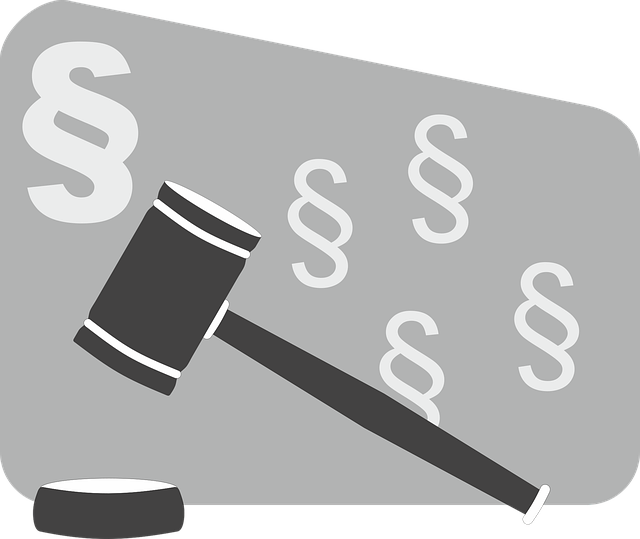Regulatory fraud laws, recently reinforced by high-profile cases like major pharmaceutical settlements over fraudulent financial reporting, protect consumers, investors, and businesses from deceptive practices. Understanding these stringent rules requires a blend of criminal defense strategies and white-collar defense tactics. Accused parties must swiftly consult legal experts to navigate complex regulations, aiming for favorable outcomes like settlement or charge dismissal. These lawsuits not only secure compensation but also deter future misconduct by setting industry standards. Businesses should implement robust internal controls, conduct regular ethical training, foster integrity, and employ comprehensive white-collar defense strategies to avoid pitfalls like extensive investigations, fines, and criminal charges.
In an era where compliance is key, understanding regulatory fraud laws is paramount for businesses navigating complex legal landscapes. This comprehensive guide delves into the intricacies of these laws, offering a detailed exploration of their origins and impact. From recent class action lawsuits that have shaped civil law to practical prevention strategies, this article equips readers with vital insights. Discover how to safeguard your organization against regulatory fraud, leveraging real-world examples and expert advice to mitigate risks effectively.
- Understanding Regulatory Fraud Laws: A Comprehensive Overview
- Recent Class Action Lawsuits: Uncovering Real-World Applications
- Implications and Prevention Strategies for Businesses
Understanding Regulatory Fraud Laws: A Comprehensive Overview

Regulatory fraud laws are designed to protect consumers, investors, and businesses from deceptive practices in various industries. These laws have become increasingly stringent due to a surge in complex financial schemes and white-collar crimes. In recent years, several high-profile cases, including notable class action lawsuits under civil law, have brought attention to the severity of regulatory fraud. For instance, the 2020 case involving a major tech company, which led to a complete dismissal of all charges after an extensive investigation, highlights both the strength and the limitations of these legal frameworks.
Understanding regulatory fraud laws requires a grasp of both general criminal defense strategies and specialized white-collar defense tactics. Prosecutors must prove intent, material misrepresentations, and a causal link between fraudulent actions and resulting damages to secure convictions. Businesses and individuals facing allegations should promptly consult with experienced legal counsel to navigate these complex regulations, ensuring the best possible outcome, whether through settlement or a complete dismissal of all charges.
Recent Class Action Lawsuits: Uncovering Real-World Applications

Recent Class Action Lawsuits in Civil Law have brought to light several significant cases that underscore the power of collective action against regulatory fraud. These lawsuits, often spearheaded by dedicated legal teams representing plaintiffs, have led to notable outcomes and raised awareness about the importance of corporate accountability. One prominent example involves a major pharmaceutical company accused of misleading investors through fraudulent financial reporting. The lawsuit not only resulted in a substantial settlement but also prompted the company to implement stricter internal controls and enhance its disclosure practices, setting a precedent for improved transparency within the industry.
The impact of these class action suits extends beyond monetary compensation for victims. They serve as a deterrent, sending a clear message to corporations that regulatory fraud will not be tolerated. By exposing unethical business practices, these lawsuits foster a sense of accountability and integrity within the philanthropic and political communities, ensuring that companies operate with fairness and transparency. Moreover, successful cases can lead to complete dismissal of all charges against wrongdoers, providing justice for clients affected by fraudulent activities and setting a standard for future legal strategies targeting regulatory violations.
Implications and Prevention Strategies for Businesses

The implications of regulatory fraud can be devastating for businesses, leading to significant financial losses, reputational damage, and legal consequences. Recent class action lawsuits in civil law have highlighted the severity of such offenses, with plaintiffs seeking substantial damages. These cases serve as a stark reminder that even seemingly minor infractions can result in lengthy investigations, hefty fines, and criminal charges. Businesses must recognize that regulatory fraud is not just a legal issue but also a strategic one.
To mitigate risks and prevent becoming ensnared in similar situations, companies should implement robust internal controls and compliance programs. This includes regular training for employees on ethical conduct and the importance of adhering to regulations. Additionally, employing a comprehensive white collar defense strategy can help organizations avoid indictment. By fostering a culture of integrity from the top down, conducting thorough due diligence, and staying informed about changing regulatory landscapes, businesses can effectively safeguard themselves against these economic crimes and ensure long-term sustainability.
Regulatory fraud laws play a pivotal role in maintaining integrity within businesses, especially as Recent Class Action Lawsuits in Civil Law highlight. By understanding these laws and their implications, companies can implement robust prevention strategies to safeguard against potential fraud. Proactive measures, such as transparent reporting, rigorous internal audits, and employee training, are essential to mitigating risks and fostering a culture of ethical conduct. Staying informed about evolving legal landscapes ensures businesses remain compliant and protect their reputation in an increasingly scrutinized global market.






